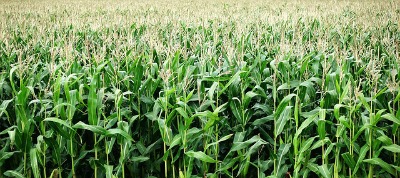Yes, there has been a renewed vigor in growing corn.
Corn farming peaks to a high level, literally and figuratively.
This is so, at least in our remote, mountainous part of Sarangani.
And so it is with zero tillage and no-till farming.
Where only the foot of mountains to both sides of Bluan River having relatively flat terrain were previously devoted to corn, even those with steep slopes and the peaks have, since April of this year, been put to use.

More hill farmers adopt herbicides in corn growing
There’s the rain, but the main reason is that Bt corn has become available at affordable prices.
This variety had been genetically modified to contain genes that enable it to produce endotoxin (within the plant) which causes toxicity to lepidopteran insects like the corn borer.
The variety is likewise resistant to glyphosate, a systemic, nonselective post-emergence herbicide.
This built-in resistance to glyphosate allows the blanket spray application of the herbicide to kill target weeds without injuring the corn crop.
It also introduced the farmers to other herbicides and their proper use including various selective and non-selective weed killers.
Btrr Has Made Growing Corn Much Easier
For the poor, ethnic, traditional, marginal farmers of this place, Btrr has made growing corn much easier.
Never mind that there are many who resist the proliferation of GMOs or transgenic varieties of crops.
It gave them an alternative means of making use of idle land and idle hours; it enabled them to produce or at least makes them confident that they can produce harvest with sufficient surplus to buy the food for the table and other basic needs.
For them, this variety adapts easily to their sustainable farming methods.
Yes, sustainable in the sense that they are able to engage in corn-growing with labor cost and necessary expense that their pockets can afford to part with.
With this variety, they are able to make productive cogonal and even the steepest parts of their farmlands which cannot be tilled even if carabao is available.
No longer is it necessary to till the land to kill the weeds prior to corn planting to ensure seedling emergence and growth until maturity.
In place of tillage, pre-planting land preparation is accomplished by slash-and-burn and herbicide spraying.
And the time needed to prepare the land is so much more reduced!
No longer is hand weeding necessary as well nor shallow cultivation by off-barring and hilling-up.
For decades these operations were deemed necessary in growing corn particularly in relation to interrow weeding and in sidedress application of fertilizers, but these practices have been abandoned and replaced by weed control through an herbicidal spray.
Likewise, these farmers are not convinced about the loss of nitrogen through volatilization and the importance of covering fertilizers with soil after sidedress application which, in conventional farming, is accomplished through the interrow passage of the plow.
They are likewise unanimous that the horse is a better mode of transport compared to the carabao both for humans and crop produce to and from these rugged mountains.
There are no roads and the trails are often destroyed by rainwater.
The river crossings are always strewn with big stones carried by flood during the rainy season.
And so, under the circumstances, no-till farming with the use of glyphosate-resistant varieties has become a practical choice for these rural farmers to continue growing corn but on a larger scale.
Essentially, this farming technology combines the application of the slash-and-burn method of land preparation and chemical weed control by herbicidal spray.
To these traditional corn growers, to these marginal farmers who are ‘farming yet hungry’, the choice is a matter of practical necessity.
